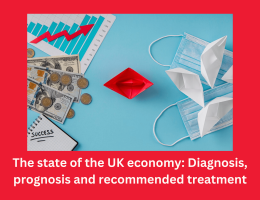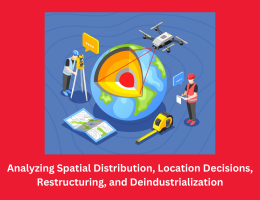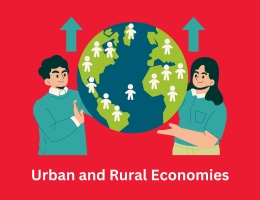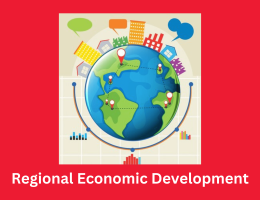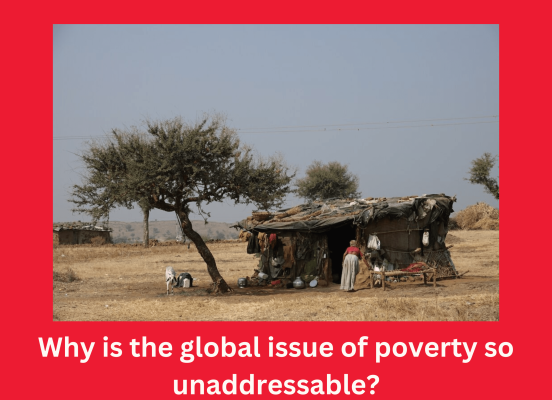
Why is the global issue of poverty so unaddressable?
- By admin --
- Friday, 05 Apr, 2024
The economic geography of the world is changing. Japan has entered a recession, the eurozone faces the threat of yet another round of stagnation, and the US, despite showing signs of strength in the latter half of 2014, has alarmed people all over the world by ending quantitative easing. Emerging economies have continued to do well in the interim. China is growing at a rate exceeding 7% annually, Malaysia at 6%, and India and Indonesia at over 5% annually.
When purchasing power parity (PPP), a measure of the entire amount of goods and services that a dollar can buy in each country, is taken into consideration, the magnitude of the global change can be observed. Ahead of Germany and Japan, India now has the third-largest economy in the world in terms of PPP-adjusted GDP, according to 2011 statistics that were made public last year. The statistics also showed that at some point in 2014, China would surpass the US as the largest economy in the world in terms of purchasing power parity. Based on our calculations, this change happened on October 10.
A sizable segment of the population in emerging nations still lives in extreme poverty despite these advancements. The poverty line is established globally at $1.25 per day, adjusted for PPP. Many people find this to be shockingly low. The fact that about one billion people—including over 80% of the people in Burundi, Madagascar, Liberia, and the Democratic Republic of the Congo—live below it, however, is genuinely shocking.
Being primarily invisible to those who are not experiencing it and safely perceived as someone else's problem is one reason why global poverty has proven to be so unsolvable. The degree of economic segregation in the world is demonstrated by the fact that most participants in conversations about global poverty—including the readers of this commentary—know very few, if any, people who are impoverished. By now, the prevalence of poverty would be much lower if it were contagious.
Thankfully, a worldwide movement to abolish poverty has emerged as a result of a chorus of voices from international organizations as well as civil society groups. Nowadays, there is a growing consensus that the impoverished are not the only ones affected by global poverty. While moral outrage has its place, it is insufficient in and of itself to inform policy. Data is essential for policymakers, as is the capacity to analyze it.
Making the distinction between what is and is not doable is the first task. For instance, some have suggested that the new framework for the Millennium Development Goals, which will be presented this year, include the supply of employment for all people. This is an unachievable goal. There will be some unemployment in any economy that is even somewhat large. Actually, development can be aided by a small degree of unemployment. To say that "employment" is a right is to take away the meaning of the word "right."
The understanding that economies are intricate and intertwined comes next. Take into consideration, for instance, a government program that provides subsidies to 1,000 villages' worth of people using just produced money. The economy won't necessarily benefit from this in its entirety. While putting money into the areas that receive it might raise living standards there, it could also raise food prices nationwide, pushing people in the non-subsidized villages into poverty. Even if there have been well-intentioned efforts to eliminate poverty, one major reason it has continued is the macroeconomic impact of small-scale measures.
Inequality is another factor contributing to poverty's persistence and, in many cases, growth. Global inequality at this point is intolerable. In 2013, the World Bank, where I serve as Chief Economist, made the first declaration that every community should make progress toward this aim its mission, which contributed to popularizing the term "shared prosperity" in conversation. Undoubtedly, there will always be some degree of inequality in the world; in fact, a certain degree is preferable since it fosters competition and progress, much like with unemployment. On the other hand, one can only deplore the profound and widespread inequality that exists today.
Some rough estimations suggest that the combined wealth of the top 50 individuals in the world is $1.5 trillion, which is slightly greater than Japan's foreign exchange reserves and represents 175% of Indonesia's GDP. The yearly income of the 50 richest persons in the world, assuming that their wealth produces 8% annually, is nearly equal to the combined income of the world's lowest one billion people, or those who live in poverty.
This is a group effort gone wrong. We need to think about actions and policies as 2015 gets underway to stop such tremendous disparity. Not only is this necessary out of a feeling of justice, but in a world where there are such stark differences, the poorest people are left voiceless even in cases where they are eligible to vote. In the end, extreme inequality is an attack on democracy.


